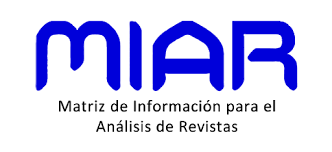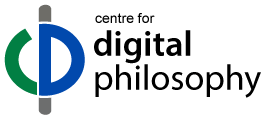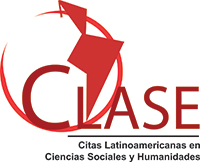Notas para um balanço atualizado da abordagem computacional da mente
DOI:
https://doi.org/10.15448/1984-6746.2024.1.44571Palavras-chave:
Representações mentais, Conexionismo, Computacionalismo estrutural, MecanicismoResumo
O artigo propõe um balanço atualizado da abordagem computacional da mente, minudenciando aspectos conceituais e críticos. O balanço é pautado por três afirmações ‒ α) A mente humana é um sistema computacional; β) A mente humana pode ser descrita como um sistema computacional; γ) Sistemas computacionais precisam de conteúdo representacional ‒, a partir das quais mostro que o computacionalismo clássico se articula em termos de α∧γ e que as vertentes contemporâneas são melhor caracterizadas em termos de α∧~γ ou β∧~γ. Por fim, após analisar uma série de objeções, argumentamos que o computacionalismo do século XXI é um programa de pesquisa filosoficamente relevante e que os críticos da abordagem computacional da mente incorrem em anacronismo quando se limitam a criticar as vertentes clássicas.
Downloads
Referências
ARISTÓTELES. Ética a Nicômaco. In: ARISTÓTELES. Coleção Os Pensadores. São Paulo: Abril, 1984. p. 47-236.
BAARS, B. J. A cognitive theory of consciousness. Cambridge, MA: Cambridge University Press, 1988.
BARRETT, L. Why brains are not computers, why behaviorism is not satanism, and why dolphins are not aquatic apes. The Behavior Analyst, v. 39, nº. 1, p. 09-23, 2016. DOI: https://doi.org/10.1007/s40614-015-0047-0
BECHTEL, W.; SHAGRIR, O. The non-redundant contributions of Marr's three levels of analysis for explaining information-processing mechanisms. Topics in Cognitive Science, v. 7, nº. 2, p. 312-322, 2015. <https://doi.org/10.1111/tops.12141> DOI: https://doi.org/10.1111/tops.12141
BECHTEL, W. Mental mechanisms: philosophical perspectives on cognitive neuroscience. New York: Routledge, 2008.
BICKHARD, M. H.; TERVEEN, L. Foundational issues in artificial intelligence and cognitive science: impasse and solution. Amsterdam: North-Holland, 1995.
BLOCK, N.; FODOR, J. A. What psychological states are not. The Philosophical Review, v. 81, p. 159-181, 1972. <https://doi.org/10.2307/2183991> DOI: https://doi.org/10.2307/2183991
BLOCK, N. Troubles with functionalism. In: BLOCK, N. Readings in the philosophy of psychology. Cambridge, MA: Harvard University Press, 1980. p. 268-305.
CHALMERS, D. A computational foundation for the study of cognition. Journal of Cognitive Science, v. 12, p. 323-357, 2011. <https://doi.org/10.17791/jcs.2011.12.4.325> DOI: https://doi.org/10.17791/jcs.2011.12.4.325
CHALMERS, D. The conscious mind: in search of a fundamental theory. Oxford: Oxford University Press, 1996.
CHEMERO, A. Information for perception and information processing. Minds and Machines, v. 13, p. 577-588, 2003. <https://doi.org/10.1023/A:1026209002908> DOI: https://doi.org/10.1023/A:1026209002908
CHRISTIANSEN, M.; CHATER, N. Connectionist natural language processing: the state of the art. Cognitive Science, v. 23, nº. 4, p. 417-437, 1999. <https://doi.org/10.1207/s15516709cog2304_2> DOI: https://doi.org/10.1207/s15516709cog2304_2
CHURCHLAND, P. Brain-wise: studies in neurophilosophy. Cambridge, MA: MIT Press, 2002.
CRAVER, C. F. Explaining the brain: mechanisms and the mosaic unity of neuroscience. Oxford: Oxford University Press, 2007. DOI: https://doi.org/10.1093/acprof:oso/9780199299317.003.0007
DAUGMAN, J. Brain metaphor and brain theory. In: SCHWARTZ, E. L. (Ed.) Computational neuroscience. Cambridge, MA: MIT Press, 1990. p. 9-18.
EDELMAN, G. M. Bright air, brilliant fire: on the matter of the mind. New York: Basic Books, 1992.
EPSTEIN, R. The empty brain: your brain does not process information, retrieve knowledge or store memories. Aeon, 2016. <https://aeon.co/essays/your-brain-does-not-process-information-and-it-is-not-a-computer>
FODOR, J. A.; McLAUGHLIN, B. P. Connectionism and the problem of systematicity: why Smolensky’s solution doesn’t work. Cognition, v. 35, nº. 2, p. 183-204, 1990. <https://doi.org/10.1016/0010-0277(90)90014-B> DOI: https://doi.org/10.1016/0010-0277(90)90014-B
FODOR, J. A.; PYLYSHYN, Z. Connectionism and cognitive architecture: a critical analysis. Cognition, v. 28, nº. 1-2, p. 03-71, 1988. <https://doi.org/10.1016/0010-0277(88)90031-5> DOI: https://doi.org/10.1016/0010-0277(88)90031-5
FODOR, J. A. Psychosemantics: the problem of meaning in the philosophy of mind. Cambridge, MA: MIT Press, 1987. DOI: https://doi.org/10.7551/mitpress/5684.001.0001
FODOR, J. A. Representations: philosophical essays on the foundations of cognitive science. Cambridge, MA: MIT Press, 1981a.
FODOR, J. A. The language of thought. New York: Thomas Y. Crowell, 1975.
GIBSON, J. J. The ecological approach to visual perception. Hove: Psychology Press, 1986.
HADLEY, R. F. Systematicity in connectionist language learning. Mind & Language, v. 9, nº. 3, p. 247-272, 1994 (1994a). <https://doi.org/10.1111/j.1468-0017.1994.tb00225.x> DOI: https://doi.org/10.1111/j.1468-0017.1994.tb00225.x
HADLEY, R. F. Systematicity revisited: reply to Christiansen and Chater and Niklasson and van Gelder. Mind & Language, v. 9, nº. 4, p. 431-444, 1994. (1994b) <https://doi.org/10.1111/j.1468-0017.1994.tb00317.x> DOI: https://doi.org/10.1111/j.1468-0017.1994.tb00317.x
HARBECKE, J.; SHAGRIR, O. The role of the environment in computational explanations. European Journal for Philosophy of Science, v. 9, art. 37, p. 01-19, 2019. <https://doi.org/10.1007/s13194-019-0263-7> DOI: https://doi.org/10.1007/s13194-019-0263-7
HARNAD, S. The symbol grounding problem. Physica D: Nonlinear Phenomena, v. 42, nº. 1-3, p. 335-346, 1990. <https://doi.org/10.1016/0167-2789(90)90087-6> DOI: https://doi.org/10.1016/0167-2789(90)90087-6
HASSABIS, D.; KUMARAN, D.; SUMMERFIELD, C.; BOTVINICK, M. Neuroscience-inspired artificial intelligence. Neuron, v. 95, nº. 2, p. 245-258, 2017. <https://doi.org/10.1016/j.neuron.2017.06.011> DOI: https://doi.org/10.1016/j.neuron.2017.06.011
HINTON, G. How neural networks learn from experience. Scientific American, v. 267, nº. 3, p. 145-151, 1992. <https://www.scientificamerican.com/article/how-neural-networks-learn-from-expe/> DOI: https://doi.org/10.1038/scientificamerican0992-144
HUTTO, D.; MYIN, E.; PEETERS, A.; ZAHNOUN, F. The cognitive basis of computation: putting computation in its place. In: SPREVAK, M.; COLOMBO, M. (Eds.) The Routledge handbook of the computational mind. London: Routledge, 2018. p. 272-282. DOI: https://doi.org/10.4324/9781315643670-21
KELLOGG, R. T. Fundamentals of cognitive psychology. 2ª. ed. New York: Sage Publications, 2012.
KREMPEL, R. Notas sobre a teoria computacional da mente. In: BARBOSA, E. C.; CID, R. L. (Orgs.) Filósofas analíticas contemporâneas. Pelotas: Ed. UFPel, 2022. p. 56-79. <https://wp.ufpel.edu.br/nepfil/>
LAKOFF, G. Women, fire, and dangerous things: what categories reveal about the mind. Chicago: University of Chicago Press, 1987. DOI: https://doi.org/10.7208/chicago/9780226471013.001.0001
LECLERC, A. Uma introdução à filosofia da mente. Curitiba: Appris, 2018.
LEITE, D. A. The twenty-first century mechanistic theory of human cognition: a critical analysis. Cham: Springer, 2021. DOI: https://doi.org/10.1007/978-3-030-63680-7
LOULA, J.; BARONI, M.; LAKE, B. Rearranging the familiar: testing compositional generalization in recurrent networks. In: Proceedings of the 2018 EMNLP Workshop BlackboxNLP: analyzing and interpreting neural networks for NLP. Brussels: Association for Computational Linguistics, 2018. p. 108-114. <https://doi.org/10.18653/v1/W18-5413> DOI: https://doi.org/10.18653/v1/W18-5413
LUCAS, J. R. Minds, machines and Gödel. Philosophy, v. 36, nº. 137, p. 219-227, 1961. <https://www.jstor.org/stable/3749270> DOI: https://doi.org/10.1017/S0031819100057983
LUPYAN, G. The difficulties of executing simple algorithms: why brains make mistakes computers don’t. Cognition, v. 129, nº. 3, p. 615-636, 2013. <https://doi.org/10.1016/j.cognition.2013.08.015> DOI: https://doi.org/10.1016/j.cognition.2013.08.015
MACKAY, D. M. Information, mechanism and meaning. Cambridge, MA: MIT Press, 1969. DOI: https://doi.org/10.7551/mitpress/3769.001.0001
MARR, D. C. Vision: a computational approach. San Francisco: Freeman & Co., 1982.
MEURER, C. F. Sobre a viabilidade computacional de uma arquitetura cognitiva não-modular. Cognitio-Estudos, v. 14, p. 55-73, 2017. <https://doi.org/10.23925/1809-8428.2017v14i1p55-73> DOI: https://doi.org/10.23925/1809-8428.2017v14i1p55-73
MEURER, C. F. Challenging evolutionary psychology with the eternalist view of the world. Cognitio-Estudos, v. 15, p. 247-262, 2018. <https://doi.org/10.23925/1809-8428.2018v15i2p247-262> DOI: https://doi.org/10.23925/1809-8428.2018v15i2p247-262
MEURER, C. F. É a modularidade massiva um programa de pesquisa empiricamente progressivo? Veritas, v. 64, e34192, 2019. <https://doi.org/10.15448/1984-6746.2019.3.34192> DOI: https://doi.org/10.15448/1984-6746.2019.3.34192
MIŁKOWSKI, M. Beyond formal structure: a mechanistic perspective on computation and implementation. Journal of Cognitive Science, v. 12, p. 359-379, 2011. <http://dx.doi.org/10.17791/jcs.2011.12.4.361> DOI: https://doi.org/10.17791/jcs.2011.12.4.361
MIŁKOWSKI, M. Explaining the computational mind. Cambridge, MA: The MIT Press, 2013. DOI: https://doi.org/10.7551/mitpress/9339.001.0001
MIŁKOWSKI, M. From computer metaphor to computational modeling: the evolution of computationalism. Minds and Machines, v. 28, p. 515-541, 2018. (2018a) <https://doi.org/10.1007/s11023-018-9468-3> DOI: https://doi.org/10.1007/s11023-018-9468-3
MIŁKOWSKI, M. Objections to computationalism: a survey. Roczniki Filozoficzne, v. 66, nº. 3, p. 57-75, 2018. (2018b) <https://doi.org/10.18290/rf.2018.66.3-3> DOI: https://doi.org/10.18290/rf.2018.66.3-3
MÜLLER, V. C. Pancomputationalism: theory or metaphor? In: HAGENGRUBER, R.; RISS, U. V. (Eds.) The relevance of philosophy for information science. London, New York: Routledge, 2014. p. 213-222.
NAGY, N.; AKL, S. Computations with uncertain time constraints: effects on parallelism and universality. In: CALUDE, C.; KARI, J.; PETRE, I.; ROZENBERG, G. (Eds.) Unconventional computation. Berlin, Heidelberg: Springer, 2011. p. 152-163. <http://dx.doi.org/10.1007/978-3-642-21341-0_19> DOI: https://doi.org/10.1007/978-3-642-21341-0_19
O'BRIEN, G.; OPIE, J. How do connectionist networks compute? Cognitive Processing, v. 7, p. 30-41, 2006. <https://doi.org/10.1007/s10339-005-0017-7> DOI: https://doi.org/10.1007/s10339-005-0017-7
PENROSE, R. The emperor’s new mind. Oxford: Oxford University Press, 1989.
PICCININI, G. Neurocognitive mechanisms: explaining biological cognition. Oxford: Oxford University Press, 2020. DOI: https://doi.org/10.1093/oso/9780198866282.001.0001
PICCININI, G.; BAHAR, S. Neural computation and the computational theory of cognition. Cognitive Science, v. 37, nº. 3, p. 453-488, 2013. <https://doi.org/10.1111/cogs.12012> DOI: https://doi.org/10.1111/cogs.12012
PICCININI, G. Computationalism. In: MARGOLIS, E.; SAMUEL, R.; STICH, S. (Eds.) Oxford Handbook of Philosophy of Cognitive Science. Oxford: Oxford University Press, 2012. p. 222-249. DOI: https://doi.org/10.1093/oxfordhb/9780195309799.013.0010
PICCININI, G. Computing mechanisms. Philosophy of Science, v. 74, nº. 4, p. 501-526, 2007. <https://doi.org/10.1086/522851> DOI: https://doi.org/10.1086/522851
PINKER, S. So how does the mind work? Mind & Language, v. 20, p. 01-24, 2005. <https://doi.org/10.1111/j.0268-1064.2005.00274.x> DOI: https://doi.org/10.1111/j.0268-1064.2005.00274.x
POLGER, T. Computational functionalism. In: CALVO, P.; SYMONS, J. (Eds.) The Routledge companion to the philosophy of psychology. London: Routledge, 2008. p. 148-163. DOI: https://doi.org/10.4324/9780429244629-10
PUTNAM, H. Representation and reality. Cambridge, MA: MIT Press, 1991.
PUTNAM, H. Psychophysical predicates. In: CAPITAN, W.; MERRILL, D. (Eds.) Art, mind, and religion. Pittsburgh: University of Pittsburgh Press, 1967. p. 37-48. DOI: https://doi.org/10.2307/jj.6380610.6
PUTNAM. H. Minds and machines. In: HOOK, S. (Ed.) Dimensions of mind. New York: University of New York Press, 1960. p. 148-180.
PYLYSHYN, Z. W. Computation and cognition: toward a foundation for cognitive science. Cambridge, MA: MIT Press, 1984.
RAMSEY, W. Do connectionist representations earn their explanatory keep. Mind & Language, v. 12, nº. 1, p. 34-66, 1997. <https://doi.org/10.1111/j.1468-0017.1997.tb00061.x> DOI: https://doi.org/10.1111/j.1468-0017.1997.tb00061.x
RESCORLA, M. A teoria computacional da mente. In: CARVALHO, E. M. (Org.) Textos selecionados de filosofia da cognição. Pelotas: NEPFIL On-line, 2022. p. 42-111. <https://wp.ufpel.edu.br/nepfil/>
ROLLA, G. A mente enativa. Porto Alegre: Editora Fi, 2021. <https://doi.org/10.22350/9786559173341> DOI: https://doi.org/10.22350/9786559173341
ROSENBLATT, F. The perceptron: a probabilistic model for information storage and organization in the brain. Psychological Review, v. 65, nº. 6, p. 386-408, 1958. <https://doi.org/10.1037/h0042519> DOI: https://doi.org/10.1037/h0042519
ROSENTHAL, D. Consciousness and mind. Oxford: Oxford University Press, 2005. DOI: https://doi.org/10.1093/oso/9780198236979.001.0001
RUMELHART, D.; McCLELLAND, J. PDP models and general issues in cognitive science. In: RUMELHART, D.; McCLELLAND, J. (Eds.) Parallel distributed processing: explorations in the microstructure of cognition. Cambridge, MA: MIT Press, 1986. p. 110-146. DOI: https://doi.org/10.7551/mitpress/5236.001.0001
SCHNEIDER, S. The language of thought: a new philosophical direction. Cambridge, MA: MIT Press, 2011. DOI: https://doi.org/10.7551/mitpress/9780262015578.001.0001
SCHWEIZER, P. Algorithms implemented in space and time. In: KIBBLE, R. (Ed.) Proceedings of the 50th anniversary convention of the Society for the Study of Artificial Intelligence and Simulation of Behaviour. Bath, UK: AISB, 2014. p. 128-136. <http://doc.gold.ac.uk/aisb50/>
SEARLE, J. R. Minds, brains, and programs. Behavioral and Brain Sciences, v. 3, nº. 03, p. 01-19, 1980. <https://doi.org/10.1017/S0140525X00005756> DOI: https://doi.org/10.1017/S0140525X00005756
SEARLE, J. The rediscovery of mind. Cambridge, MA: MIT Press, 1992. DOI: https://doi.org/10.7551/mitpress/5834.001.0001
SIEGELMANN, H. T.; SONTAG, E. D. Analog computation via neural networks. Theoretical Computer Science, v. 131, nº. 2, p. 331-360, 1994. <https://doi.org/10.1016/0304-3975(94)90178-3> DOI: https://doi.org/10.1016/0304-3975(94)90178-3
TALLIS, R.; ALEKSANDER, I. Computer models of the mind are invalid. Journal of Information Technology, v. 23, p. 55-62, 2008. <https://doi.org/10.1057/palgrave.jit.2000128> DOI: https://doi.org/10.1057/palgrave.jit.2000128
THOMPSON, E. Mind in life: biology, phenomenology, and the sciences of mind. Cambridge, MA: Harvard University Press, 2007.
TONONI, G. An information integration theory of consciousness. BMC Neuroscience, v. 5, nº. 1, article 42, p. 01-22, 2004. <https://doi.org/10.1186/1471-2202-5-42> DOI: https://doi.org/10.1186/1471-2202-5-42
TOWNSEND, A. Representation in neural networks. Dissertação (Mestrado em Filosofia). Universidade de Adelaide, Austrália, 2023. <https://digital.library.adelaide.edu.au/dspace/bitstream/2440/139686/1/Townsend2023_MPhil.pdf>
VARELA, F.; THOMPSON, E.; ROSCH, E. The embodied mind: cognitive science and human experience. Cambridge, MA: MIT Press, 2016. [Primeira edição publicada em 1991] DOI: https://doi.org/10.7551/mitpress/9780262529365.001.0001
WHEELER, M. Reconstructing the cognitive world. Cambridge, MA: MIT Press, 2005. DOI: https://doi.org/10.7551/mitpress/5824.001.0001
Downloads
Publicado
Como Citar
Edição
Seção
Licença
Copyright (c) 2024 Veritas (Porto Alegre)

Este trabalho está licenciado sob uma licença Creative Commons Attribution 4.0 International License.
Direitos Autorais
A submissão de originais para a Revista Veritas implica na transferência, pelos autores, dos direitos de publicação. Os direitos autorais para os artigos publicados nesta revista são do autor, com direitos da revista sobre a primeira publicação. Os autores somente poderão utilizar os mesmos resultados em outras publicações indicando claramente a Revista Veritas como o meio da publicação original.
Licença Creative Commons
Exceto onde especificado diferentemente, aplicam-se à matéria publicada neste periódico os termos de uma licença Creative Commons Atribuição 4.0 Internacional, que permite o uso irrestrito, a distribuição e a reprodução em qualquer meio desde que a publicação original seja corretamente citada. Copyright: © 2006-2020 EDIPUCRS



















